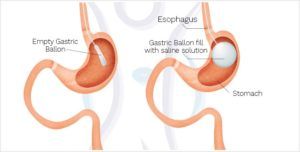How to Apply for a Gastroparesis Clinical Trial: A Step-by-Step Guide
Participating in a clinical trial can provide individuals with gastroparesis the opportunity to access innovative treatments and contribute to medical research. If you're interested in applying for a gastroparesis clinical trial, it's important to understand the process and know where to find relevant trials. In this article, we will provide a step-by-step guide on how to apply for a gastroparesis clinical trial and share reliable sources to help you find ongoing trials in your area.
Understanding Gastroparesis Clinical Trials:
Gastroparesis clinical trials are research studies conducted to evaluate new treatments, medications, or interventions for individuals
with gastroparesis. These trials aim to gather data on the safety and effectiveness of potential treatments before they are made widely available. By participating in a clinical trial, you may gain access to cutting-edge therapies and contribute to advancements in gastroparesis management.
Step 1: Consult with Your Healthcare Provider:
Before considering a clinical trial, it's essential to consult with your healthcare provider. They can provide valuable insights into your specific condition, discuss potential benefits and risks of participating in a trial, and help you make an informed decision.
Step 2: Research Available Clinical Trials:
Conduct thorough research to identify gastroparesis clinical trials that are currently recruiting participants. Reliable sources include clinical trial databases, such as ClinicalTrials.gov, and reputable research institutions specializing in gastroenterology.
Step 3: Determine Your Eligibility:
Review the eligibility criteria for each clinical trial you're interested in. Eligibility requirements may include factors such as age, severity of symptoms, previous treatments, and overall health. Make sure you meet the specified criteria before proceeding.
Step 4: Contact the Clinical Trial Team:
Reach out to the clinical trial team for the trials you're interested in. They can provide additional information, answer any questions you may have, and guide you through the application process.
Step 5: Complete the Application Process:
Follow the instructions provided by the clinical trial team to complete the application process. This may involve filling out forms,
providing medical history, and attending screening visits to assess your eligibility further.
Reliable Sources for Finding Gastroparesis Clinical Trials:
- ClinicalTrials.gov: This comprehensive database allows you to search for gastroparesis clinical trials by location, eligibility criteria, and study phase.
- Reputable research institutions: Check the websites of renowned research institutions specializing in gastroenterology for information on ongoing clinical trials.
- National Institute of Diabetes and Digestive and Kidney Diseases (NIDDK): The NIDDK provides information on gastroparesis and maintains a list of clinical trials on their website.
In conclusion, participating in a gastroparesis clinical trial can offer potential benefits and contribute to advancements in the field.
By following the step-by-step guide outlined in this article and utilizing reliable sources, you can navigate the process of applying
for a clinical trial and potentially access innovative treatments for gastroparesis.
Sources:
1. National Institute of Diabetes and Digestive and Kidney Diseases (NIDDK). (n.d.). Gastroparesis Clinical Trials. Retrieved from
https://www.niddk.nih.gov/health-information/digestive-diseases/gastroparesis/clinical-trials
2. ClinicalTrials.gov. (n.d.). ClinicalTrials.gov. Retrieved from
https://clinicaltrials.gov/
3. Google Search: How to apply to a gastroparesis clinical trial.
<mime-attachment.html>
¡FREE LABS!
EVERY FRIDAY 8 AM - 9:30 AM
Or call us to make an appointment
No need to fast
No long waits
inmediate exam results
Lipid panel • Liver function test • Glucose levels to screen for diabetes • Body mass index • Hemoglobin measurement to rule out anemia • Blood pressure • Glycosylated hemoglobin to monitor and confirm diabetes • Electrocardiogram • Ultrasound to detect liver fibrosis • Dietetic education










